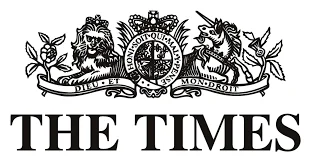Business travelers mainly come from high-volume destinations like Germany, the UK, Canada, France, Spain, the Netherlands, Mexico, China, and Italy—countries home to major financial and industrial firms. Focusing on these markets provides airlines with more predictable revenue than targeting leisure destinations.
Outbound US corporate travel has softened slightly with a 2.3% decrease in the first half of the year. Airlines are shifting capacity toward domestic routes with strong premium demand and adjusting fare structures to match evolving passenger profiles.
Canada stands out as a market where inbound leisure demand has dropped sharply due to political tensions and border security concerns. In 2024, Canadians made up 26% of America's overseas visitors but have since reduced air travel bookings by an average of 22%-43%, while road trips fell over 33%. However, Canadian business travel increased marginally by about 0.18%, prompting airlines to protect business-heavy routes between major Canadian cities and US hubs.
Airfares between Canada and the US rose early in 2025 but returned closer to previous levels by summer. Corporate demand remains steady across these routes even as tourism falls off.
To adapt to declining leisure traffic, airlines are emphasizing flexible fare options for corporate customers who book later and require schedule flexibility. SAP reports show that US business travelers pay some of the highest international ticket prices globally—a trend that helps maintain unit revenues despite lower overall volumes.
Operationally, focusing on core corporate corridors allows tighter scheduling at key hubs and better use of aircraft resources during disruptions. Business travelers also contribute higher ancillary revenues through services like WiFi or lounge access.
The reliance on corporate demand is not without risks; trade tensions, stricter visa policies, or rising costs could further affect both leisure and business segments if they escalate. The United States currently ranks low on global travel competitiveness measures—17th out of 18—which could impact long-term growth prospects for inbound tourism.
Airlines plan to continue strengthening relationships with corporate clients while optimizing schedules around their needs as long as current conditions persist. Reliability remains a top priority for this segment.
The reasons behind declining tourist interest include economic factors such as weaker global conditions limiting discretionary spending among potential visitors. Additionally, political actions—including tariff policies under Donald Trump—have strained relations with key allies like Canada and Europe, further discouraging leisure travel to the United States.
 Alerts Sign-up
Alerts Sign-up


































